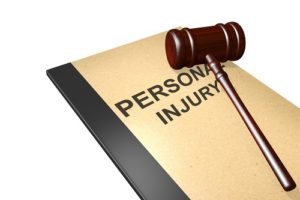What is my personal injury case worth?

If you are considering filing a personal injury lawsuit over a car accident, motorcycle accident, slip and fall, nursing home malpractice, or any other kind of injury, you may be wondering “What is my case worth?” The answer comes down to “damages” — figuring out what your injuries have cost you monetarily, physically, and mentally (and, in rare cases, whether the defendant’s conduct should be punished). Thus, an attorney must be able to properly analyze the different types of damages you sustained to accurately value your case.
The two basic categories of damages awarded in personal injury claims are Compensatory and Punitive, and some basic principles regarding these damages are examined below.
-
COMPENSATORY DAMAGES
Compensatory damages seek to reimburse or compensate an injured party for the harm they suffered, and these types of damages are available in almost every injury case. There are several different types of compensatory damages, but in general, they are broken down into Special and General Compensatory Damages.
Special Compensatory Damages
Special damages compensate for monetary expenses incurred because of an injury. They are unique to the individual and vary significantly from one case to the next. A special damages award should make a victim whole for expenses incurred or money lost due to the accident that caused their injuries. Special damages cover expense or loss related to an injury, and there is no limit on the amount an injured party can claim. Some of the more common types of special damages are:
Medical Expenses. A personal injury damages award almost always includes the medical expenses associated with the accident — reimbursement for treatment you’ve already received and compensation for the estimated future cost of medical care you’ll need because of the accident.
Lost Wages. You may be entitled to compensation for the accident’s impact on your salary and wages — not just income already lost, but also the money you would have been able to make in the future, were it not for the accident.
Property loss. If any vehicles, clothing, or other items were damaged as a result of the accident, you’ll likely be entitled to reimbursement for repairs or compensation for the fair market value of the property that was lost.
General Compensatory Damages
General damages compensate an injured individual for non-monetary damages incurred because of the accident. All personal injury victims have at least some general damages. The most common types of general damages are:
Pain and suffering. You may be entitled to compensation for pain and serious discomfort you suffered during the accident and in its immediate aftermath — also for any ongoing pain and suffering that can be attributed to the accident.
Loss of enjoyment. When injuries caused by an accident keep you from enjoying day-to-day pursuits like hobbies, exercise, and other recreational activities, you may be entitled to receive “loss of enjoyment” damages.
Loss of consortium. In personal injury cases, “loss of consortium” damages typically relate to the impact the injuries have on the plaintiff’s relationship with their spouse — the loss of companionship or the inability to maintain a sexual relationship, for example. In some cases, loss of consortium damages are awarded directly to the affected family member rather than to the injured plaintiff.
-
PUNITIVE DAMAGES
Punitive damages are not intended to compensate the injured victim, but rather to punish the person who caused the injury when that person’s actions were intentional or malicious. Punitive damages are meant to deter the person who caused the injury from engaging in such extreme conduct in the future. In Massachusetts, punitive damages are only available when specifically authorized by statute. In Rhode Island, a party seeking punitive damages must produce evidence that the defendant acted with “willfulness, recklessness or wickedness” that amounts to “criminality, which for the good of society and warning to the individual, ought to be punished.” Such acts might include aggravated battery, sexual assault, or fraudulent behavior that causes widespread financial harm.
At Keough + Sweeney, we have the necessary skill and experience to properly value your case. We are skilled at negotiating successful settlements for our clients, but won’t hesitate to take your case to court if we can’t reach a favorable resolution. Call our office 401-724-3600 to schedule an appointment.


